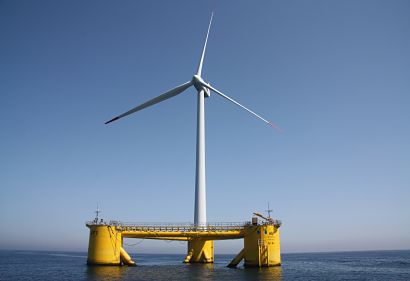
Sarens PSG, which specialises in the assembly, transportation and launch of offshore wind turbines, has been commissioned by the BlueFloat Energy | Nadara Partnership to to pioneer innovative solutions for transporting floating foundations from land to sea.
The study will focus on developing methods to deploy completed floating wind structures directly from construction or production facilities to operational sites. It aims to achieve this for production line scale volumes, spanning multiple operational years.
The study will investigate deployment operations to identify key cost, risk, and scheduling implications and assess the impact of these factors on port infrastructure within the context of the partnership’s ambitious projects.
The announcement comes as hundreds of industry leaders, government and stakeholders prepare to gather for the Scottish Renewables Offshore Wind Conference in Glasgow on January 22 and 23.
Key challenges under examination include ensuring safe, fast, and low-risk processes while minimising costs and assessing the most effective and appropriate use of high-specification port infrastructure - critical for the successful industrial-scale deployment of floating offshore wind technology.
Sarens PSG will utilise the world-class engineering expertise of its partner Sarens NV, a global powerhouse in engineered heavy lift and transport.
“Sarens PSG is excited to continue our collaboration with the BlueFloat Energy | Nadara Partnership on this groundbreaking study, conducted from our newly established Offshore Wind Centre of Excellence in Aberdeen’s Energy Transition Zone” said Steve Clark, Managing Director of Sarens PSG. “While deployment techniques have been trialed in smaller-scale demonstrator projects, scaling these processes to achieve major deployments with next-generation solutions at pace and cost-effectively will be transformative for the industry. This investment in innovative research underlines the partnership’s commitment to delivering successful floating offshore wind projects that are pivotal to global energy transition efforts and achieving Net Zero targets. It has the potential to be an absolute game-changer for the sector.”
Sarens PSG also recently completed a critical Floating Offshore Wind Turbine Generator (WTG) Integration study for the developer, following a competitive tendering process in September. This study focused on addressing the challenges associated with the integration, onto floating offshore wind foundations, of the latest and next-generation WTGs components which, due to their exceptional weight and need to lift to significant height, necessitates the use of massive ring cranes.
The high demand for these specialist cranes across multiple industries has made their availability a pivotal factor in offshore wind projects. The study assessed the influence of such cranes on port infrastructure and integration operations, identifying potential limitations, risks, costs, and constraints. It also evaluated the current and future market for large cranes, ensuring their compatibility with evolving floating foundation and WTG technologies.
“These studies represent a significant step forward in the development of our pipeline of floating offshore wind projects in Scotland and will not only deepen our understanding of some of the most pertinent technical challenges facing our industry, but also leverage local expertise through the regional supply chain” said David Robertson, UK Portfolio Director at the BlueFloat Energy and Nadara Partnership.
Sarens PSG’s detailed analysis enables the BlueFloat Energy | Nadara Partnership to adopt a targeted approach in future project planning, procurement, CAPEX forecasting, and risk management. The latest study builds on this vital foundation, further advancing the deployment capabilities of floating offshore wind technologies.
For additional information:

